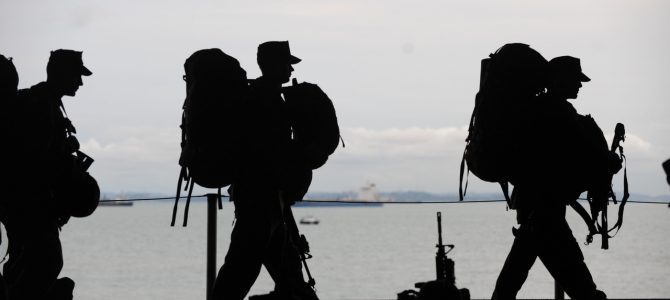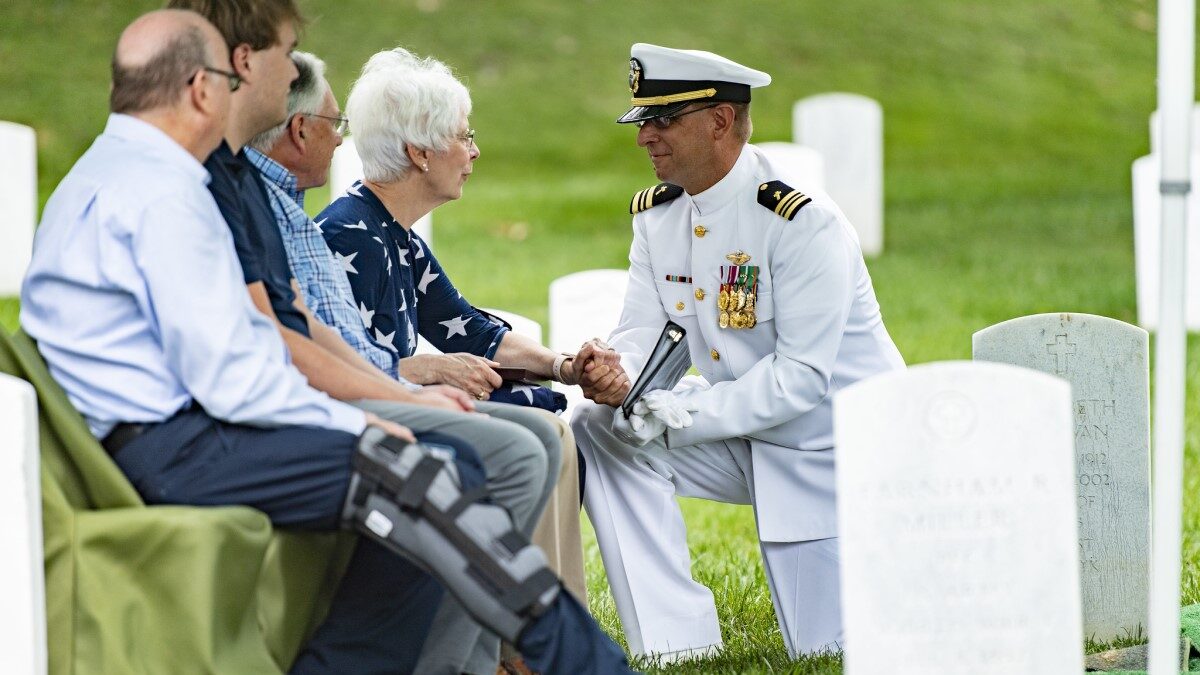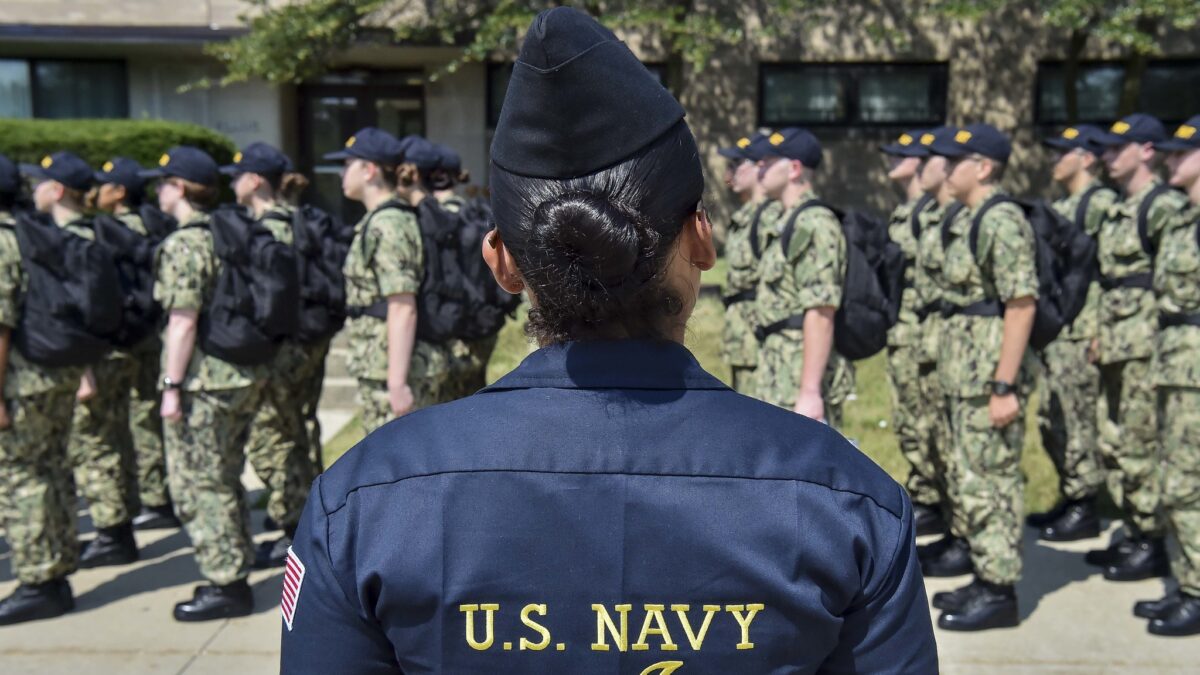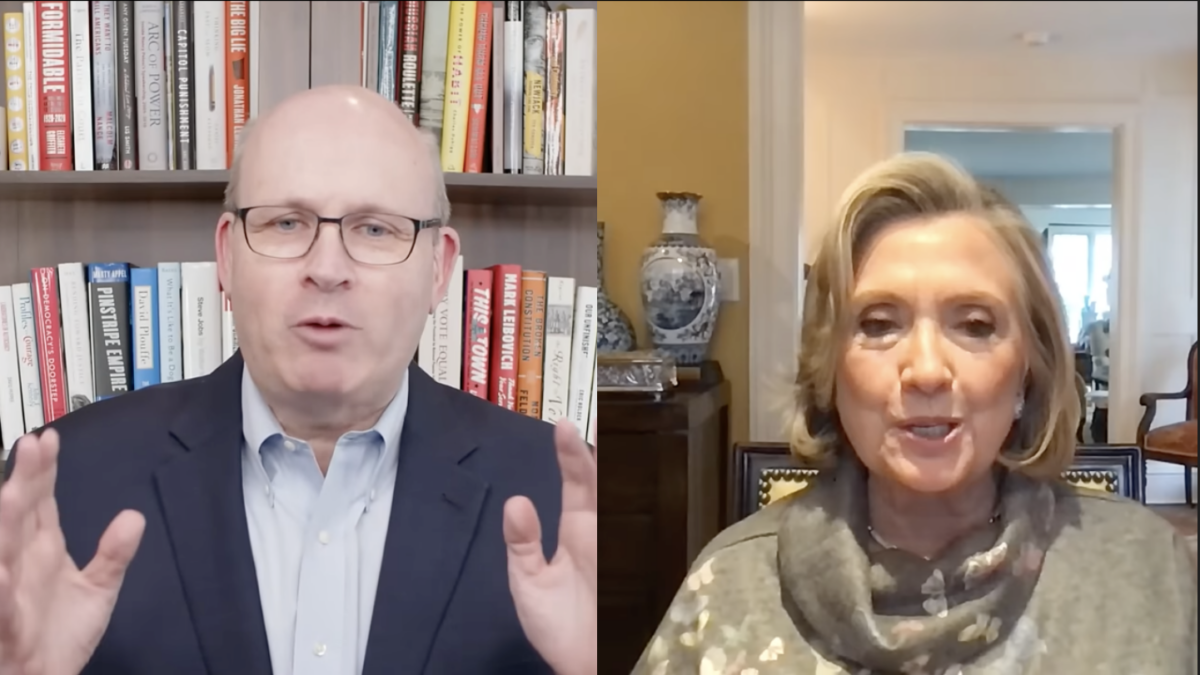
The following is a speech the author gave to the Veterans of Foreign Wars, Toledo Post 335, on August 21, 2015.
Let us begin with a prayer typical of the way I pray at invocations in the Army, for change of command ceremonies, for officer commissionings at the University of Toledo, and for prayers out in training: “In the name of the Father and of the Son and of the Holy Spirit. Gracious Heavenly Father, bless our gathering today, guide my words, that whatever good they convey may be from You and You alone, through Christ our Lord, Amen.”
For some of you aware of the trends in the military, you might recognize these as fighting words. I said the name that dare not be spoken. I prayed in the name that dare not be prayed in. Now, a lot of what you may have heard about praying in the name of Jesus is sensationalized. I have always prayed according to my Christian faith and have never had a problem, except from other Christian chaplains. No problems from battalion commanders, no problems from generals who’ve been at events.
At one of my drills, in fact, on the way to final formation, a Muslim soldier who liked to spar with me on theological matters came up to me and said, “Hey, Chap, are you going to say a prayer before we leave for safety?” “Absolutely! Hope you don’t mind me praying in the name of Jesus,” I said cheerfully. “I don’t care what name you pray in,” he said, “Just say a prayer.” I think that’s far more the attitude of the typical soldier.
This has been a great relief to me because, of all the things I feared upon entering the Army three years ago, it was this issue: Will I be forced to pray in a way that goes against my conscience? You see, a little about the background of my German Lutheran ancestors.
America Drew a Line of Freedom in the Sand
In 1817 Frederick William III of Prussia made several decrees uniting the Lutheran Church and the Reformed Churches of Prussia. On church governance, sacraments, worship, and practice the Lutheran and Reformed churches were forced to unite. A small body of Lutherans could not water down their faith. They could not just sacrifice for the sake of political expediency what they believed were essential truths based on the Word of God himself.
So Germany was no longer safe for them. Was there a place somewhere in the world where they could believe according to the dictates of conscience? Was there a place governed by principles of religious freedom, where their religious beliefs were not privileges granted them by the hand of a sovereign political figure, but were embedded in the very bedrock of its constitution?
Well, you might be familiar with that place. It’s the place which has in its charters these words: “Congress shall make no law respecting an establishment of religion, or prohibiting the free exercise thereof.”
That place is the United States of America. Within its borders, within every acre of land, within the lines of sands around its every beachhead, those who live there enjoy the protections of religious freedom as well as all the freedoms we enjoy in our land. That image is the image I set before you today, a line in the sand. If my forefathers, those persecuted Germans, could just get into that land, if they could just get on the right side of that line in the sand, it could literally mean their life as opposed to their death, freedom as opposed to prison, happiness as opposed to persecution.
For me, fellow citizens of these cherished liberties, that is my line in the sand. One of the most personal and intimate rights—the right to worship God according to one’s conscience, which is what prayer is, an act of worship—is something I cannot just give up for the sake of being politically expedient.
That is why I joined the Army. That is why I’m willing to die for my country, because of lines like those, because the beachhead is worth securing, worth even my life, to know that my children will be able to worship my Lord Jesus freely. This is why America is a sacred place for me, and why any blood shed for these God-given liberties has a sanctifying effect on her grounds.
If I woke up one day and our nation no longer had religious liberties, America would cease to have worth for me. So, when I pray according to my conscience, in Christ’s name, this gets to the very heart of my understanding as an American. It’s a “To be or not to be” question. If my country, or the government on behalf of my country, is going to tell me how to pray, America ceases to be America, and I cease to wear this flag with pride. That is my line in the sand.
I know many of you know those lines in the sand intimately. For you the line in the sand was quite literal, as it has been for many who have fought for our country.
Am I a Not a Man and a Brother?
My family and I visited Gettysburg last week. Wow, talk about lines in the sand! From seminary ridge to Cemetery and Culp hills, and Little Round Top, to everything in between—the Wheatfield, Devil’s Den, and the Peach Orchard. Lines in the sand over and over. And what hung in the balance on either side of those lines? It was a simple question: Was a human being of African descent only worth three-fifths of a person, to be traded as property? Or was he made in God’s image just like any other human and deserving of the liberties granted in our system of government?
If you were on the side of the line where a Confederate boot trod, that question was answered one way. If you were on the side of the line where a Union boot trod, that question was answered another way. That’s a rather important line in the sand, isn’t it—especially if you were black. It gets to the heart of human dignity.
Am I three-fifths of a person, or fully human? Can I worship according to my conscience or not? Can I write an opinion in the press that challenges the government? Can the state trample on my private property? Can I bear arms to defend myself from harm? Can I be arrested and tried without just cause? Those are the lines in the sand we cherish, and mutually respect among our citizenry.
Throughout our history, the lines in the sand have defined American involvement in foreign wars. Whether it’s the noxious political system of fascism or the soul-destroying evil of communism, you’ve all had friends and brothers who sacrificed their blood—if not your own persons, your very limbs—and by doing so, have sanctified the grounds, securing these soils for the liberties we enjoy today.
Please know on behalf of me and my family that we hold sacred the land you and your band of brothers shed blood to secure. Because of your sacrifice that land remains a land of liberty, because you drew a line in the sand and said, as God said at the beginning of time to the very waves, “This far you may come, but no farther, And here your proud waves must stop!” Yes, Frederick William, King George, Adolf Hitler, Emperor Hirohito, and all you gaggle of commies, here your proud waves must stop.
The Lines Are Becoming Blurred
We are entering into a state of crisis in our country, a crisis of identity. It’s a crisis of not knowing what it means to be American, what America stands for. Ultimately it’s the belief that lines in the sand are things of the past, that dying for lines in the sand is not worth it.
If you think about it, the image of sand has a double meaning. A line in the sand means one thing. But think about the expression “shifting sands.” The first meaning stands for stalwartness, principle, and sacrifice. The other stands for weakness, base survival instinct, and lack of principle. That seems to be what’s happening in our country today. Lines are becoming blurred. Clear principles are cast in a twilight shadow as a nighttime creeps upon the land.
In the beginning, God created the heavens and the earth. The earth was without form or void, and darkness was over the face of the deep. And God said, “Let there be light.” The light of truth has always made clear the distinction between right and wrong, truth and falsehood, good and evil. The light of truth exposed clearly the lines, the lines in the sand.
When God literally marked a line in the sand and carved the image of Adam, he breathed his life into man, who became a living being. This means human life in all its fullness is directly related to the lines in the sand. That’s why we’re willing to die for those lines in the sand. A human life devoid of basic liberties is not worth living. Or, put in far better words, “Give me liberty or give me death.” You all committed yourselves to that truth.
But what do you do when the satanic and demonic reverses everything we’ve just stated? That is what the satanic and demonic is, after all. If God marked out Adam’s shape from the sands of dust and gave him life, Satan tried to reverse that, return Adam to the dust. If God marked out day from night, light from darkness, Satan blurs and blends everything together in a dreary cast of overcast gloom. If God marks out truth from falsehood, Satan, the father of lies, blurs and blends the very meaning of words themselves.
I mean, after all, what exactly is a human? Is a black slave really fully human, or just three-fifths of a person? Who knows where that line is?
Does life begin at conception, or maybe much later, who knows—four to five months? Or maybe not until the child is born and taken from the hospital. Who knows, really? Where is that line? Well, until we figure that one out, what harm is it if we sell fetal livers, lungs, and brains for profit?
Or what is marriage? One man, one woman ‘til death do you part, like God said? Well, that’s a bunch of medieval stuff (that, by the way, our president believed four years ago). No, marriage can be two men, two women, or how about three men and five women, or how bout serial monogamy, as some are trumpeting, or a group of whoever. Again, where is that line?
Or what is a male or a female? Where is that line between male and female? I think there are something like 50 or so gender identities you can declare for yourself. Again, where is that line?
Nobody Is Willing to Die for a Blur
Oh, by the way, on this I’m actually excited, because the Army is shifting on transgenderism, which is awesome, because then I can identify as a woman during my PT test. Don’t think the soldiers aren’t talking about this. That scares me, because it means cynicism is settling in. When the lines become blurred and blended, how do you identify that line in the sand to fight for? I mean, if the only difference between you and the enemy is a matter of degree within 50 shades of grey, are you really willing to die for your shade of grey?
I can tell you how I’ve answered that question: “Chaplain, be sure to pray a generic prayer. Blur and blend your God together with others so you don’t offend. Offer your grey mush and keep everyone’s eyes glazed over while you go through the perfunctory rite.” But I don’t worship a generic God.
Let me ask you something: how many of you have a generic wife? How would your wife react if you said, “I don’t want to offend other women, so I’m just going to refer to you as ‘wife’ from now on. I’m going to blur and blend the line between you and other women. I mean, why should I turn off other women? That’s sort of mean.” No, your wife has a name, and that is her glory, and you calling her that name is what sanctifies the relationship you have with her. The same is true of God, is it not?
Again, you would be willing to fight for the woman who bears the name of your wife, and I would be willing to die for the God who bears the name Jesus Christ, and all of us have committed ourselves to die for the country that bears the named liberties we hold. But how many are willing to die for the grey mush? Or, to use an example I used when the Army asked me my opinion of generic prayers, I said, “Okay, go take the best recipes from your favorite Mexican, Chinese, Polish, and Italian restaurants. Now put it in a blender and turn it into some grey goop. Oh wait, that’s Army food. Hmmmm.” I hope I didn’t offend them. In any event, you get the point. When the lines blend and blur, you lose your will to fight to the death for principles.
That’s why I believe we are in a state of crisis. After all, there is plenty moral clarity in the world to apply our principles to. Trafficking in sexual slavery, ISIS, Vladimir Putin’s aggressions, genocide. These aren’t grey areas. These are not areas where any American should be confused. But when we can’t even get our own principles straight because the lines have become blended and blurred, we have lost our moral authority in the rest of the world.
Redraw that Line, and Defend It
Today, I hope each of you hear the call once again to draw your line in the sand and fight one last battle to secure it. This is no pandering to an aged group of veterans. I am quite literal. The future of our nation can be steered by things you can take home with you today.
You see, the advantage of blending and blurring the lines is that, precisely because there’s no moral clarity or guidance, you can let things slide. You can indulge your pleasures. You can plug your brain into 40 to 50 hours of TV, video gaming, social networking, Instagramming, Facebooking, and get carried away into an unreal world. You can get soft.
At the same time, you lose the will to die for anything, you somehow lose the will to live. Life becomes nothing more than seeking ever-increasing escapist highs. That sort of nation will topple like a house of cards before an enemy like ISIS, where, well, you might say their perverse moral clarity is steely sharp.
Just read the accounts of Western teen girls going to Syria to join ISIS. That’s exactly the dynamic going on. Our Western world offers cheap entertainment and quick thrills (at least our Western world as it’s evolved into).
But I submit you know a different America. You grew up in a different America, one where pro football Hall of Famer Jimmy Conzelman could say, as he did at a commencement address for the University of Dayton in a speech that became required reading for West Point grads, “Time is short. The enemy occupies United States territory; he holds many Americans as prisoners of war; he threatens the shores of our continent. You men who graduate today have a definite obligation to your country, to your homes and to yourselves. Avoid dangerous apathy. The present calls for action….Prepare yourselves for combat service….Cultivate an acquaintance with violence; challenge it—meet it—laugh at it!”
“Sometimes a truth comes to use, clearly and unmistakably, in simple terms and from a simple source. When it does, it impresses and penetrates far more than all the exhortative efforts of the great or the famous. Such a message came in 1918 from the stricken fields of France, where lusting brigandage then, even as today, periled the hopes and lives for all free people. Martin Treptow, an Iowa boy, had made the supreme sacrifice at Chateau Thierry. On the flyleaf of a diary found in his pocket, he had inscribed his conception of his duty to his country at war. He wrote: ‘America must win this war; therefore I will work; I will save; I will sacrifice; I will endure; I will fight cheerfully and do my utmost, as if the issue of the whole struggle depended on me—alone.’”
Here’s One Way You Can Do It
This was an era when people knew about lines in the sand. For you, I challenge you to take your stand on one more line in the sand. Next time you are with your family, your kids and grandkids, and you see them slink off into their rooms to play a video game, or crouch over their smartphones to send off one more text, call them over and say, “Put down the phone, and let me tell you my story.”
Then open up for them the world you grew up in, where the line in the sand mattered. Tell them why you were willing to die for your country, why you spilled blood or watched your friends spill blood. Tell them of the civic virtues our nation held to, the toughness, the patriotism, the sacrifice.
Explain how you cheated to get into the Army because you wanted to go to war and fight for a higher purpose. Explain how life is more than cheap thrills and entertainment. Explain the importance of family, of using one’s God-given gifts to improve themselves and others, of service toward one another. Explain how the blood shed over the lines in the sand was not so today’s generation would quail in the face of every challenge and stand down.
I was privileged as a child to have a neighbor who did this for me, a Navy vet from World War II. I’ve also had the great joy as a pastor to sit with shut-ins who are veterans and listen to their stories. It’s because of them that I joined the Army three years ago. I know a lot of veterans don’t like to talk about their experiences. But they should before these stories get lost from the living witnesses and are found in books alone. It’s not the same in a book. It means so much more coming from grandpa or dad.
Tell your story, about how you drew your line in the sand, and were willing to die for that line. Too much blood has been shed over that line for your story to be forgotten in the next generation. As Lincoln said, they “gave their lives that [our] nation might live.” Know that, with every story you tell, about the lines you stood to defend, in eyes that too often have grown dull from a dull age, you will see the sparkle of life glimmer once again. That sparkle is the hope of our nation.
In Jesus’ name.









